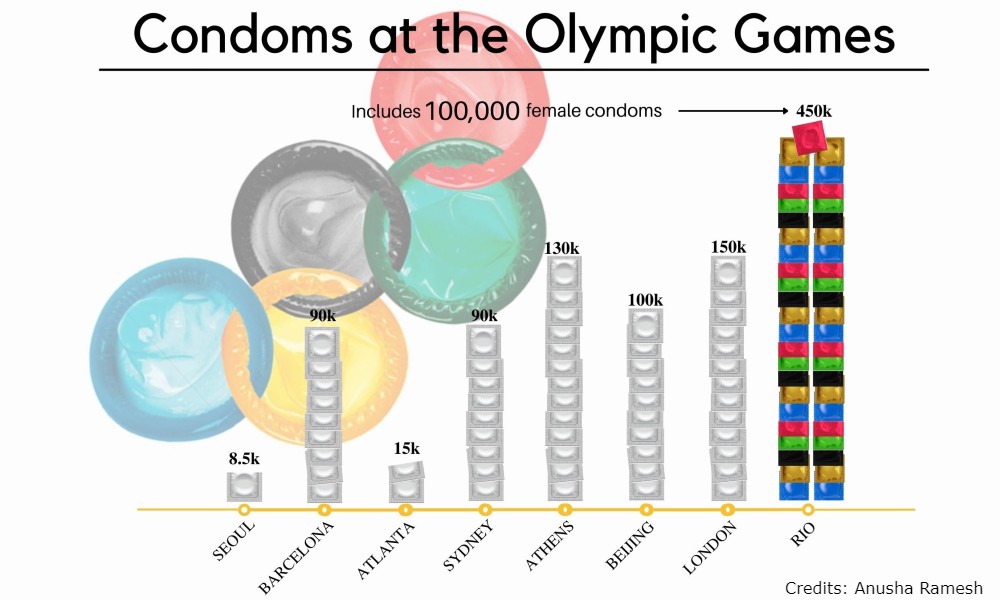Olympic organisers say they’ll hand out 150,000 condoms to athletes.
Jammu: As Japan prepares itself to host the Tokyo Olympics, despite the backlash and the protests from the public, local condom companies are looking forward to capitalise on the influx of athletes.
“Only two companies, Sagami and Okamoto, are producing the 0.02 and 0.01-millimeter condoms, and so we think the Olympics are a good opportunity to show this Japanese quality all over the world,” Hiroshi Yamashita, the senior sales manager of Sagami, said in May 2018.
Over the years, distributing free condoms at the Olympic Games has become a kind of a tradition. Officials started passing out free condoms to athletes at the Seoul Olympics in 1988. It has continued ever since. At 450,000, the 2016 Rio Olympics saw the most numbers of condoms distributed. They had condom vending machines in the village for athletes to take them.

Russell Mark, a former Australian gold medal-winning shooter, described the Olympic Village as “the most testosterone-fuelled place on earth.”
Ryan Lochte, an American competitive swimmer, said that “70 to 75 percent of the Olympians” have sex at the games.
Karanbir Singh, a sports psychologist, said, “Some athletes indulge in sexual activities before their competition as it works as a distraction or a stress buster. Certain athletes in the past have found it suitable and it is up to the athletes but we as psychologists generally don’t encourage them to go ahead with it before their event.”
According to multiple reports, Tinder reported a 129 percent increase in matches within the Olympic Village area during the 2016 Rio Olympics. Numerous dating apps like Bumble and Happn also saw a massive rise in activity during the games. Grindr, a gay dating application crashed within minutes of athletes arriving during the 2012 London Olympics.
“It is always better to provide condoms during such sporting events. The athletes have high levels of testosterone and it is good that free condoms are provided as it will lead to safe sex,” added Karanbir.
“Condoms are an effective means to help people protect themselves from contracting sexually transmitted diseases, and the thinner they are, the more men tend to use them,” said Tomonori Hayashi, marketing manager at Okamoto, in an article, which put its own 0.01mm condom on the market in 2015.
If the previous trends and demands are to be looked at, the upcoming Tokyo Olympics will be a massive opportunity for the Japanese condom manufacturers to push their products and get some traction amongst the athletes.



